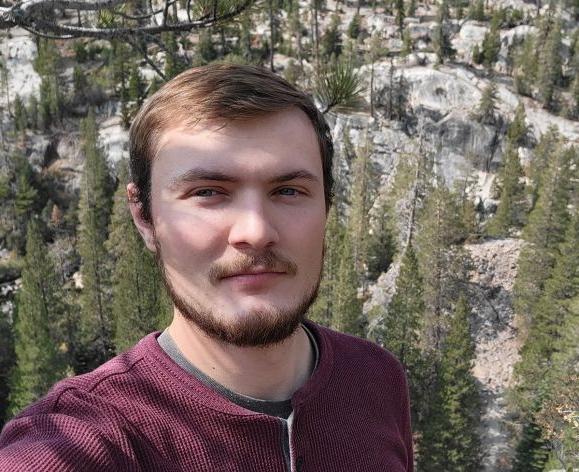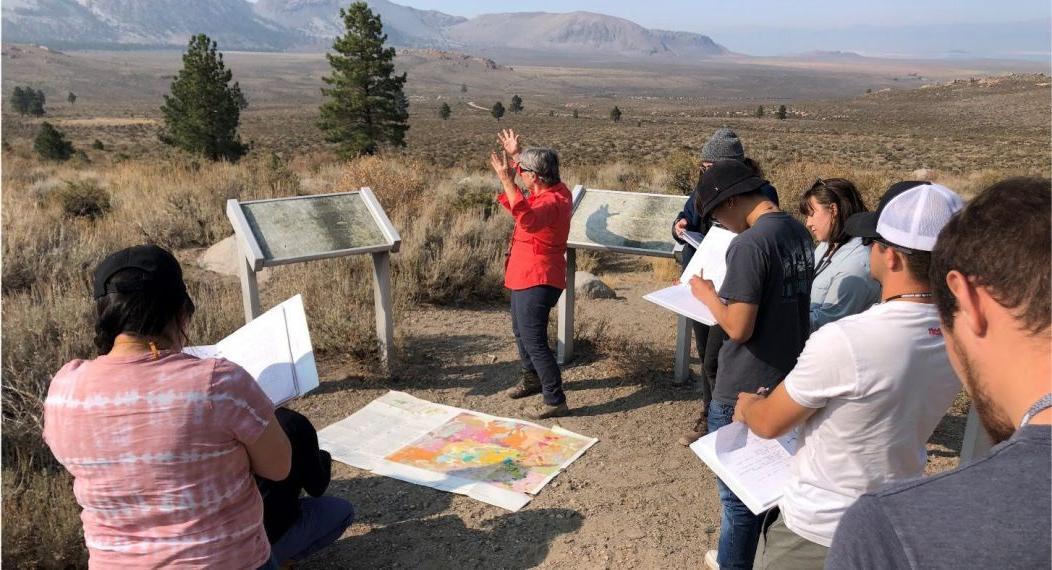主要: 地质与环境科学学士学位
毕业后: 2022年5月
家乡: 洛迪,

Q: What do you think is unique about the geological and environmental sciences program at Pacific?
Jesse: While speaking to students from other universities, it seems that what's unique about our college and specifically our geology department is the small class sizes. Most of the classes range from about five to 20 students, so you get a more one-on-one experience with the professors.
Students who transferred to Pacific [from other schools] said they would have classes ranging from 50 to a couple hundred people at the entry level geology courses which didn't give you a lot of opportunity to discuss course material with professors.
Q: Is hands-on experience important for a geology major?
Jesse: Yes, so geology is a very hands-on profession. If you don't know how to identify things in the field, you won't be very successful in a professional career. 这与小班授课有关.
If you think about having a class of 50 to a couple hundred people, it's very difficult to get all those students out on a field experience and keep it organized. 这就是我们部门的卖点. 小班授课, we can load up in a couple of vehicles and go on one-day or multiple-day trips and still be able to see a lot of the different geological outcroppings and formations for any given class.
Q: What types of hands-on learning experiences have you had at Pacific?
Jesse: Most of my experiences have been field trips. One of the big trips we took was through our structure course which is looking at structural changes and formations as they go below the earth's surface and kind of the processes that lead to those changes and mechanisms.
During that trip, we were out in the desert mapping and looking at outcrops. 班级规模更小, we were able to go to way more remote locations safely, taking samples and mapping angles and taking strikes and dips, which is like the measurement of how the formations go down into the earth, 这样你以后就可以做报告了.
这对专业领域非常重要, because that ties into things like oil geology and mining geology where you're looking at where your oil traps are below the surface and where your mineral deposits are going to be.
Just being able to go out in the field in the small groups and have a continued conversation with a professor as you walk through, 我认为这对学生非常有益, especially in very hands-on mapping professions of mineral and oil geology.
Q: What's the follow up from a field trip when you come back to classes on campus?
Jesse: So the latter half is often an analysis of what you saw in the field, because the geology that we often see isn't very cut and dry, you have to work at it like a puzzle because you'll have one magma body coming up here and another going over there, 介于两者之间的物质可能是变质的, 会被侵蚀, you don't know until you've gone through and looked at the entire area taking notes and samples and looked at maps. Then you're able to just start to piece together what you're looking at.
在战场上你会做出解释, once you're actually back in the classroom you have time to go over all your data and piece together what you were actually looking at in the field.
Q: Do you collaborate with other students and your professor?
杰西:这取决于作业的要求, but in the geology department we're very collaborative because that's professionally what you're going to be doing. The problem with doing this kind of work on your own is the interpretations that you're making are fairly subjective because a certain crack in the rock could be interpreted a dozen different ways. So being able to collaborate with your fellow students and professors on data really allows for a better picture to be formed rather than what you might find just on your own.
Q: Does the location of Pacific contribute to a more robust experience for geology students?
Jesse: The great thing about studying here in California is the unique experience of being in a state where we have the Sierra Nevadas which is unique in that it creates multiple zones of geology that you can see.
You have three categories of rocks that we mostly study which are sedimentary, 变质岩和火成岩. 从海岸出发, 有沉淀物, halfway towards the Sierra Nevadas you have a lot of metamorphic. As you move into the Sierra Nevada, you see the igneous rock deposits. 在俄勒冈这样的州, pretty much all you're going to see is volcanic flows whereas here in California you're able to study all three in a fairly small, 限制区域.
问:一般来说,地质学家是什么样的人?
Jesse: I would say that geologists in general are very outdoorsy people given that much of what you do both in school and in the workforce is field work so, that really draws people who are hikers or rock climbers, 喜欢户外活动的人. 你也会从团队中获得一种非常包容的感觉.




